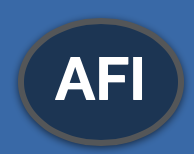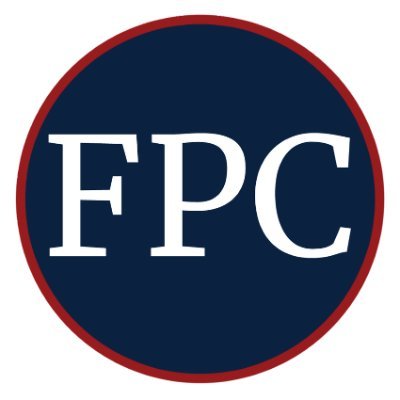CPJ’s guide to legal rights in the U.S. prepares journalists for election coverage
The 2024 United States presidential election is only four months away amid intensifying hostilities toward journalists across the country and around the world.
On the eve of the Democratic and Republican National Conventions, the Committee to Protect Journalists (CPJ) has developed a U.S. legal guide for election coverage to ensure that journalists know their rights while covering political events, protests, and interfacing with law enforcement officers.
This is one of many tools CPJ has developed to ensure newsrooms and freelancers in the U.S. are prepared to report the upcoming U.S. election, which will undoubtedly have global repercussions.
CPJ’s U.S. Presidential Election 2024 journalist safety kit covers significant security concerns journalists may confront in the lead-up to the election, as well as on election day, while our safety and emergencies resources include advice for journalists on situational awareness and preventing and managing online abuse amid an increasingly hostile environment for the press.
CPJ welcomes the United Nations Working Group on Arbitrary Detention’s expert finding that journalists Evan Gershkovich and José Rubén Zamora are being held arbitrarily by Russia and Guatemala respectively, and should be immediately released.
The legal experts’ review of the facts in both cases reiterate CPJ and others' documentation and demands for Gershkovich and Zamora’s immediate release.
The UN panel found that the arrest of Wall Street Journal reporter Gershkovich “lacked a legal basis,” is “arbitrary,” and was “in fact designed to punish his reporting” on Russia’s war in Ukraine. Gershkovich’s trial started June 26, 2024, in the Sverdlovsk Regional Court in the Russian city of Yekaterinburg. The next hearing is scheduled for August 13.
In respect to Zamora’s case, the UN expert group declared the continued detention of the president of elPeriódico newspaper is arbitrary and in violation of international law. Zamora was handed a six-year prison sentence in June 2023 on money laundering charges, which was overturned on appeal in October 2023. Although a retrial was ordered, the case has been beset by numerous delays, and Zamora has been in detention since his July 2022 arrest.
“The U.N. Working Group’s acknowledgment of José Rubén Zamora’s arbitrary detention highlights that he has been consistently denied a fair trial, and there is no justification for his ongoing imprisonment,” said Cristina Zahar, CPJ’s Latin America program coordinator.
In March, CPJ submitted an urgent appeal to the same group of experts regarding the incidence of Palestinian journalists arbitrarily held by Israel.
https://www.linkedin.com/pulse/cpjs-guide-legal-rights-us-prepares-journalists-election-coverage-uwo9e/
On the eve of the Democratic and Republican National Conventions, the Committee to Protect Journalists (CPJ) has developed a U.S. legal guide for election coverage to ensure that journalists know their rights while covering political events, protests, and interfacing with law enforcement officers.
This is one of many tools CPJ has developed to ensure newsrooms and freelancers in the U.S. are prepared to report the upcoming U.S. election, which will undoubtedly have global repercussions.
CPJ’s U.S. Presidential Election 2024 journalist safety kit covers significant security concerns journalists may confront in the lead-up to the election, as well as on election day, while our safety and emergencies resources include advice for journalists on situational awareness and preventing and managing online abuse amid an increasingly hostile environment for the press.
CPJ welcomes the United Nations Working Group on Arbitrary Detention’s expert finding that journalists Evan Gershkovich and José Rubén Zamora are being held arbitrarily by Russia and Guatemala respectively, and should be immediately released.
The legal experts’ review of the facts in both cases reiterate CPJ and others' documentation and demands for Gershkovich and Zamora’s immediate release.
The UN panel found that the arrest of Wall Street Journal reporter Gershkovich “lacked a legal basis,” is “arbitrary,” and was “in fact designed to punish his reporting” on Russia’s war in Ukraine. Gershkovich’s trial started June 26, 2024, in the Sverdlovsk Regional Court in the Russian city of Yekaterinburg. The next hearing is scheduled for August 13.
In respect to Zamora’s case, the UN expert group declared the continued detention of the president of elPeriódico newspaper is arbitrary and in violation of international law. Zamora was handed a six-year prison sentence in June 2023 on money laundering charges, which was overturned on appeal in October 2023. Although a retrial was ordered, the case has been beset by numerous delays, and Zamora has been in detention since his July 2022 arrest.
“The U.N. Working Group’s acknowledgment of José Rubén Zamora’s arbitrary detention highlights that he has been consistently denied a fair trial, and there is no justification for his ongoing imprisonment,” said Cristina Zahar, CPJ’s Latin America program coordinator.
In March, CPJ submitted an urgent appeal to the same group of experts regarding the incidence of Palestinian journalists arbitrarily held by Israel.
https://www.linkedin.com/pulse/cpjs-guide-legal-rights-us-prepares-journalists-election-coverage-uwo9e/
about the fpa
Founded in New York in 1918, The Foreign Press Association (FPA) is a member-driven, international, not-for-profit organization.
Our mission is to:
Our mission is to:
- Promote professional and social relationships for media professionals.
- Support and protect foreign correspondents working and living in the United States.
- Provide opportunities to keep members in contact with American life and opinion and with affairs in other countries.
- Foster international goodwill through relationships built through global media.








